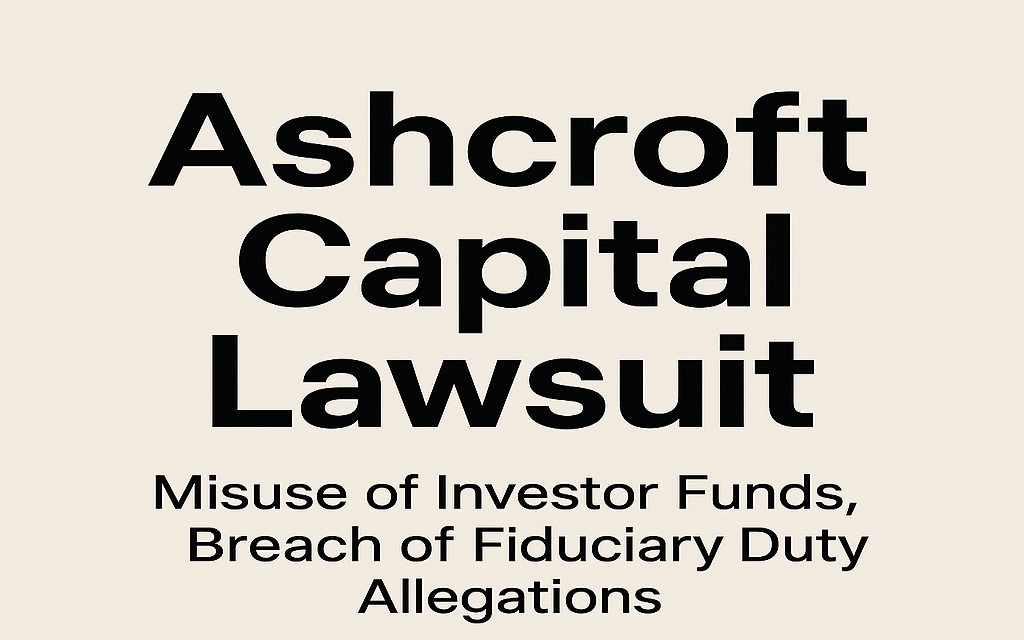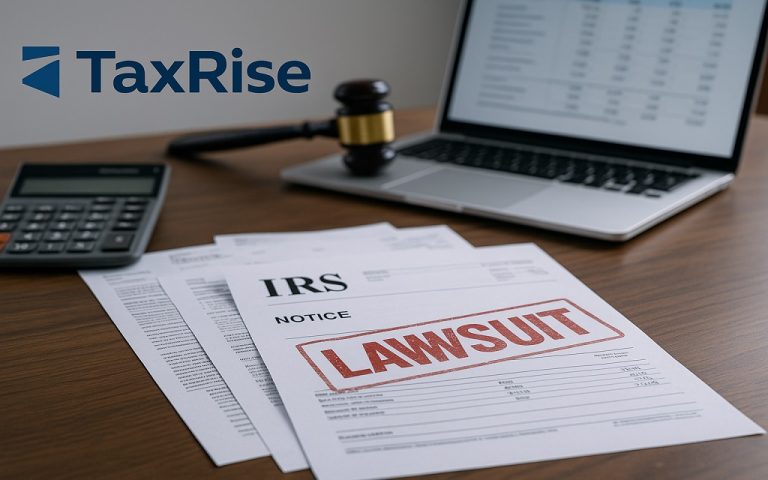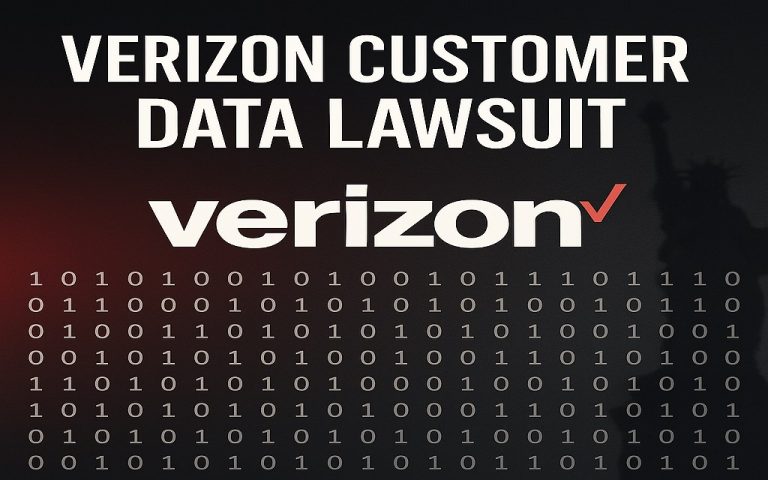Are you worried about your real estate investments? Ashcroft Capital, a well-known syndication firm, now faces a major lawsuit in 2025. Investors claim their money was misused, returns were misrepresented, and legal duties were ignored. You need to understand the whole story before making your next move. This article breaks down the key facts, timelines, legal issues, and risks of the Ashcroft Capital lawsuit you need to know right now.
What Is the Ashcroft Capital Lawsuit?
Ashcroft Capital faces a major legal challenge in 2025. A group of limited partners (LPs) has filed a lawsuit. They accuse the company of mismanagement, lack of transparency, and breach of fiduciary duty. The case is active. Investors are seeking answers.
What Is Ashcroft Capital Known For?
You should know that Ashcroft Capital is a real estate investment firm. It specializes in multifamily syndications. Frank Roessler co-founded the company. Joe Fairless is also a prominent figure. They have raised capital from individual and institutional investors. The company has managed over 10,000 units across U.S. cities. It uses a value-add strategy to boost returns.
In past years, the company earned praise for steady returns. Many investors trusted its transparency and reporting structure. That trust is now under review.
What Is the Full Timeline of the Legal Case?
You need to follow the events step by step. Timelines help clarify complex issues.
Lawsuit Timeline
- January 2025: Investor group files civil complaint
- February 2025: Court accepts the case for review
- March 2025: Ashcroft issues public denial
- April 2025: Discovery phase begins
- May 2025: SEC contacts parties for compliance documents
Additional steps will unfold based on evidence and court decisions.
Why Did Investors File the Lawsuit?
You need to understand the core claims. Investors say their funds were misused. They claim performance projections were misleading. Financial reports came late or lacked key data.
Allegations Include
- Redirection of capital without disclosure
- Unrealistic return projections
- Incomplete or delayed financial updates
- Favoritism toward executives over LPs
- Potential SEC disclosure violations
You should examine official statements from both parties. Ashcroft Capital denies the claims. Legal teams continue to review documents.
Who Are the Key Figures in the Case?
It is essential to know the names of the leaders under scrutiny. Frank Roessler and Joe Fairless lead Ashcroft Capital. Plaintiffs have raised concerns about their decision-making.
You can also find experienced legal teams on both sides of the issue. Plaintiffs hired counsel with a strong background in securities law. Ashcroft has retained defense attorneys with expertise in syndication cases.
What Is the Current Legal Status?
The case remains in the pre-trial phase as of May 2025. The court accepted the complaint earlier this year. Discovery procedures are active. Attorneys are reviewing records, investor agreements, and financial disclosures.
You should stay aware of possible outcomes:
- Settlement agreement before trial
- Full trial with jury verdict
- Regulatory penalties from the SEC
- Internal restructuring at Ashcroft Capital
Must Read: What Happened in the Flo Rida Lawsuit?
How Can the Lawsuit Affect You as an Investor?
You need to question the safety of your capital. Syndication structures depend on trust. LPs now feel uncertain. Cases like this shake confidence.
You should ask:
- Are reports delivered on time?
- Are risks explained clearly?
- Do sponsors put your interests first?
According to a 2024 FINRA survey, 41% of passive investors doubt the transparency of their sponsors. The number has increased since.
What Are the Legal Standards for Fiduciary Duty?
It is essential to comprehend the regulations that govern fund managers. Fiduciary duty means acting in the best interest of investors. It includes full disclosure of material facts. It demands loyalty and responsible decision-making.
Therefore, it is crucial to recognize that violating a fiduciary duty can lead to substantial legal and financial repercussions. Courts often examine:
- Conflict of interest disclosures
- Consistency in reporting
- Compliance with stated investment strategy
In SEC v. Navellier (2017), the firm faced charges for making misleading statements in its marketing. That case set new standards for asset managers.
What Are the Industry-Wide Impacts?
It is necessary to examine broader risks. Other firms using similar syndication models may face scrutiny. Compliance procedures could change. You may see new requirements.
Industry Changes Might Include
- Mandatory audits before fund launch
- Strict SEC filing procedures
- Higher capital requirements for GPs
- Independent performance evaluations
A 2023 Deloitte report warned about lax oversight in the multifamily sector. The current lawsuit confirms the risk.
Why Does Transparency Matter in Real Estate Syndication?
You deserve access to timely and accurate data. Many LPs rely on projected returns. Trust erodes when numbers change without explanation.
You should request:
- Quarterly financial reports
- Property-level operating statements
- Third-party audits
In a 2024 CBRE investor poll, over 58% of limited partners (LPs) ranked reporting accuracy as their top concern. That concern continues to rise.
What Should You Ask Before Investing in Similar Funds?
It is wise to conduct a complete check before committing your capital. Start with key questions about controls and disclosures.
Questions You Should Ask
- Is the sponsor registered with the Securities and Exchange Commission (SEC)?
- Are past project outcomes verifiable?
- Do you get unrestricted access to reporting tools?
- Does the GP invest significant capital alongside you?
Avoid relying on branding. Demand documents. Ask for prior case studies.
Are Legal Protections Sufficient for LPs?
You must understand your legal rights. Syndication contracts often favor sponsors. Many LPs don’t realize that until issues arise.
You should review your PPM carefully. Consider legal review before signing. Check indemnification clauses. Some sponsors limit their liability.
According to a 2023 NAREIT study, over 66% of investors failed to identify conflicts in deal terms. That lack of oversight causes damage later.
What Role Can Regulators Play in This Case?
The SEC can intervene. If financial misconduct occurred, penalties may follow. The SEC has already requested related filings.
You can expect:
- More attention to sponsor disclosures
- Delays in syndication launches
- Revised PPM templates by law firms
In past similar cases, such as the 2022 RealtyOne case, the SEC imposed fines of over $5 million. That case triggered new compliance checks.
What Should You Do Right Now?
You should track the case closely. Monitor legal filings. Read every investor update.
Immediate Steps You Can Take
- Speak with your legal advisor
- Compare terms in your current investments
- Ask sponsors for audit history
- Request updates on asset performance
Information is your best protection. You cannot afford blind trust.
What Should You Remember Going Forward?
It is your responsibility to assess every deal. Rely on facts. Demand transparency. Request documents before investing.
You should remember:
- Legal protections favor proactive investors
- Audit records protect your capital
- Disclosures must match the actual use of funds
Ashcroft Capital’s case sends a warning. Trust must be earned. Legal safeguards only help those who act early.
Final Words
You need to protect your financial future. Stay informed. Ask questions. Review all documents. Watch for red flags.
You should never rely solely on a brand’s reputation. Check every deal. Confirm the numbers—demand clear reports.
You have to stay alert. Ashcroft Capital Lawsuit proves that trust must be earned. Due diligence protects your capital.
Disclaimer: This article provides a general overview of the Ashcroft Capital Lawsuit. It is not legal advice. It is based on publicly available information and is intended for informational purposes only. It does not constitute legal advice.
Musarat Bano is a content writer for JudicialOcean.com who covers lawsuits, legal news, and general legal topics. Her work focuses on research-based, informational content developed from publicly available sources and is intended to support public awareness. She does not provide legal advice or professional legal services.




